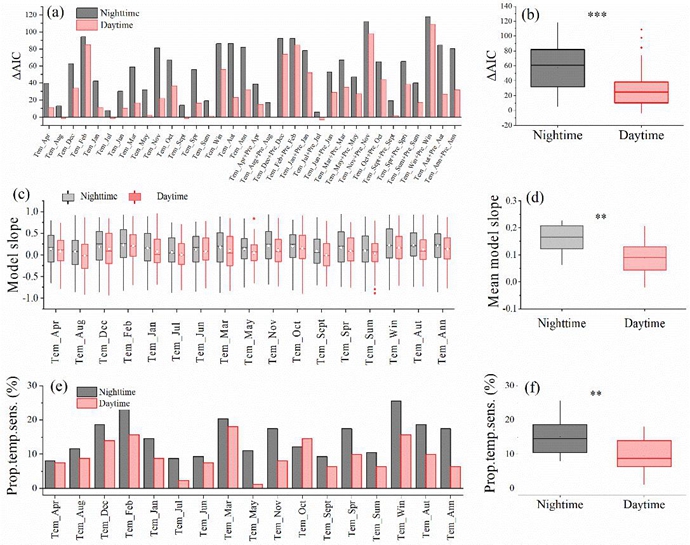Nighttime Overweights Daytime Warming for Alpine Treeline Recruitment
2023-03-20
The upper range limits for tree species are extremely sensitive to climate change, and global climate warming has already produced profound influences on the recruitment dynamics of alpine treelines worldwide. Previous studies only paid attention to the impacts of mean daily temperature increase on alpine treeline recruitment, without considering of the asymmetric effects of daytime and nighttime warming.
In an effort to identify the different effects of daytime and nighttime warming on treeline recruitment, researchers from Wuhan Botanical Garden of the Chinese Academy of Sciences have synthesized the time series of tree recruitment in alipine treeline after 1900 from 172 treeline sites across the Northern Hemisphere.
The results point out the positive effects of both daytime and nighttime warming on treeline recruitment across different regions in the Northern Hemisphere, but their contributions are uneven.
"Such an asymmetric effect of daytime and nighttime warming on treeline recruitment could be attributed to the occurrence of drought stress, which is mainly caused by daytime warming rather than by nighttime warming" explains DANG Haishan, Professor at Wuhan Botanical Garden.
This study reveals that nighttime warming rather than daytime warming plays a much more important role in promoting the recruitment in alpine treelines, which further deepens the understanding about the influences of the ongoing climate warming on mountain ecosystems.
This research was supported by the National Natural Science Foundation of China, and the results have been published in Global Change Biology entitled “Asymmetric effects of daytime and nighttime warming on alpine treeline recruitment”. (First published: 10 March 2023)

The different responses of treeline recruitment to daytime and nighttime temperature increase (Image by WBG)